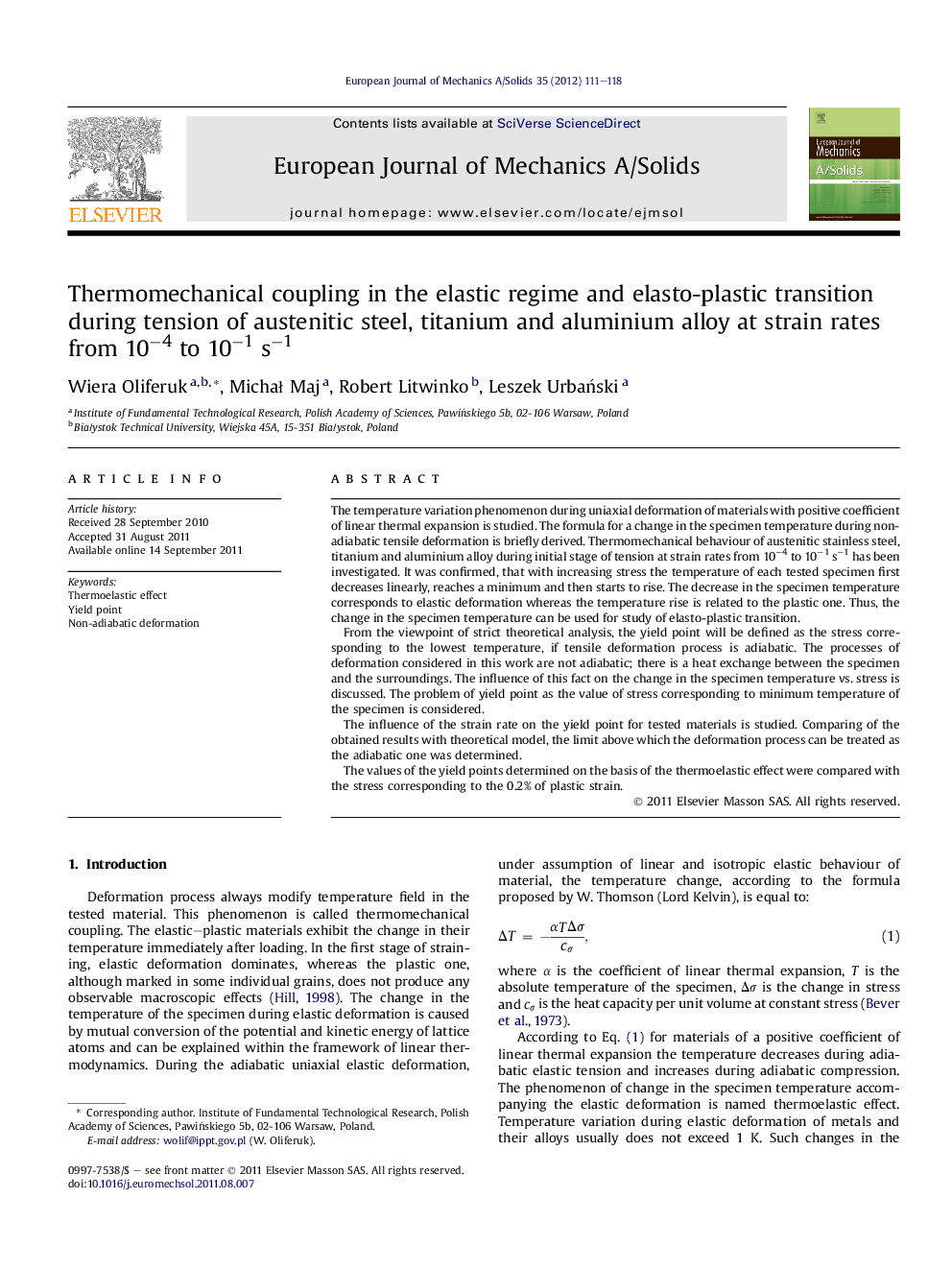| Article ID | Journal | Published Year | Pages | File Type |
|---|---|---|---|---|
| 774748 | European Journal of Mechanics - A/Solids | 2012 | 8 Pages |
The temperature variation phenomenon during uniaxial deformation of materials with positive coefficient of linear thermal expansion is studied. The formula for a change in the specimen temperature during non-adiabatic tensile deformation is briefly derived. Thermomechanical behaviour of austenitic stainless steel, titanium and aluminium alloy during initial stage of tension at strain rates from 10−4 to 10−1 s−1 has been investigated. It was confirmed, that with increasing stress the temperature of each tested specimen first decreases linearly, reaches a minimum and then starts to rise. The decrease in the specimen temperature corresponds to elastic deformation whereas the temperature rise is related to the plastic one. Thus, the change in the specimen temperature can be used for study of elasto-plastic transition.From the viewpoint of strict theoretical analysis, the yield point will be defined as the stress corresponding to the lowest temperature, if tensile deformation process is adiabatic. The processes of deformation considered in this work are not adiabatic; there is a heat exchange between the specimen and the surroundings. The influence of this fact on the change in the specimen temperature vs. stress is discussed. The problem of yield point as the value of stress corresponding to minimum temperature of the specimen is considered.The influence of the strain rate on the yield point for tested materials is studied. Comparing of the obtained results with theoretical model, the limit above which the deformation process can be treated as the adiabatic one was determined.The values of the yield points determined on the basis of the thermoelastic effect were compared with the stress corresponding to the 0.2% of plastic strain.
► Elasto-plastic transition during tension at different strain rates is studied. ► The formula for temperature change during non-adiabatic tension is briefly derived. ► The change in the specimen temperature was measured using infrared thermography. ► Yield point as the stress corresponding to minimum temperature was assigned. ► The strain rate above which deformation can be treated as adiabatic was determined.
